On December 2, 2022, Kim Namjun, the 28-year-old leader of the South Korean boy band BTS, who goes by the moniker “RM,” released his debut solo album Indigo. For RM, who started putting out his music on online hip-hop communities under the pseudonym of Runch Randa in 2007, this album has taken 15 years to materialize. In that time, he changed his name twice (from Runch Randa to Rap Monster before settling with RM), made his debut with BTS as the leader of the boy band, achieved worldwide superstardom, and rewrote K-pop history. He is now back as a solo artist with an album that commemorates the end of his twenties (In Korea, newborns are considered 1 year old at birth and turn a year older on January 1 rather than on their birthday. RM would be turning 30 in Korean age on January 1, 2023 at the time of this interview, which has been edited to use his Korean age throughout for clarity).
As an artist who has experienced drastic changes throughout his teens and twenties due to the meteoric rise of BTS, RM has struggled underneath the glamor of success to find and establish his own identity and artistic purpose. After encountering the works and philosophy of artist Yun Hyong-keun, RM believes he has found his answer. Yun, who was a leading figure in the Dansaekhwa (monochromatic abstract painting) movement, emphasized that artists must strive to establish their own humanity before pursuing art, because their humanity inevitably becomes reflected in their art. Having adopted Yun’s philosophy as the underlying ethos that guides his art and life, RM has attempted to establish his own humanity in Indigo by documenting his life in all of its imperfections and complexities. It documents his life as RM and Kim Namjun at age 29 and offers a glimpse into how he wants to conduct his life in his days ahead.
“It feels like I’ve finally done my homework that I’ve been putting off for a long time,” he said, with a relieved look on his face, when we met days after the release of his album.
He explained that the album, which is intended to capture a new side of RM that fans have not seen from him as a member of BTS, is also a piece of work that “had to be made” to maintain his sense of self. What was it that necessitated RM – or Kim Namjun – to create Indigo? In our conversation, we discussed his album, what in his past tormented him, how he overcame this past, and how he plans to move forward.
How do you feel after releasing your first solo album?
I feel relieved. As an artist, I think there is a tremendous difference between having a studio album and having only singles and doing features. It feels like I’ve finally done my homework that I’ve been putting off for a long time. It also feels like an initial public offering of the RM brand. I’m very proud that I got to leave behind a record of my trials and tribulations at the end of my 20s.
xNow that the album’s out, what have you been doing?
Working on this album set something off in me. I actually started working on new materials one or two weeks before releasing this album. Putting Indigo together was hard work, so I wanted to take some time off after releasing it. But once I released it, I found new inspirations and felt the desire to work on new music. I realized that I’m really not the type to take breaks.
Any hints on what you’ve been working on?
I’m trying to create something that is much lighter and more playful. Indigo was a serious endeavor that I contemplated for four years. It carried a special weight, because it was meant to showcase me as an artist to the world for the first time. My plan is to release something more easy-going next. It will most likely be a single or an EP.
Are there any specific reasons why it took quite some time for you to release your first solo album?
It wasn’t easy to prepare solo material, because I was dedicating most of my energy to BTS. But I did want to release a studio album as a solo artist at some point. I don’t think it’s healthy to have your entire identity wrapped up in a group. This group, of course, is a crucial part of my life. But it does not entirely represent who I am as a person, and I had to release this album to stand on my own as an individual.
I understand that you drew inspiration from art when making this album. Can you tell us a little more on the kind of art that inspired you?
I developed a serious interest in art and started going to exhibits around late 2018. I then started working on this album in 2019, so these two things coincided. It became very natural to connect art and music for me. I came across many different artists at the time, but there was one artist, in particular, that I really wanted to model my life after and that was Yun Hyong-keun.
What aspect of Yun Hyong-keun’s life and artwork inspired you the most?
By the time he was around my age, he had already experienced the Japanese colonial era, the Korean war, and the dictatorship. He had a gun pointed at his head, was imprisoned, and experienced multiple brushes with death. It’s a life that I can’t even imagine. Despite the circumstances, however, he was a sincere and pure individual. “You be a human ‘til the death of you,” as Erykah Badu sang in “Yun,” was a line that embodied his attitude towards life. That’s what gives resonance to his belief that you should strive to establish their own humanity before pursuing art.
You be a human
Till the death of you – “Yun”
What does “you be a human ‘til the death of you” mean to you?
Protecting your “humanhood” is an intense battle. It involves a lifelong struggle with your conscience. It also involves overcoming injustice, desire, and anxiety within yourself. In Yun’s time, Korea was a poorer country than it is now. There were many things that weren’t right as it was an era that threatened your humanhood, forced people to compromise with injustice, and betray one another. But Yun never blamed his time or his fate. Instead, he maintained his integrity as an artist. I don’t dare to walk in his shoes, but I believe that I would be a better person by keeping his teachings close to my heart.
The influence of the song’s namesake felt very apparent, because “Yun,” to me, felt like a commentary on the entire album.
That’s very accurate. This album is structured to start off with a hint. “Yun,” along with the artwork used on the album’s cover, acts as a commentary on how to understand the entire album. It explains what each track means, how the stories were compiled, why I created this album, and how I want to live. This track also provides the framework in which the listener can understand the other songs on the album and the album in its entirety.
Could you pick a line from “Yun” that permeates the entire album?
“F*** the trendsetter.” That is a potent line. It appears again as “Trendsetter? I’m a friend, better” in “Still Life.” To be clear, I have nothing against trendsetters. The celebrities that set trends are admirable in their own ways, but I have no desire to assume that position. I’ve seen so many people flash and disappear over the years, and that’s not what I want for my team or myself.
That seems consistent with the theme of “Wild Flower” – the desire to remain an eternally-lasting wildflower, rather than a fireworks disappearing in the sky.
I once aspired to be more like fireworks — someone who comes in with a bang and disappears into the night. But after encountering Yun Hyong-keun’s work, I began to reflect on why I started making music in the first place. What I realized is that I started off wanting to write poetry. Even when I started rapping, I approached it as rhythm and poetry. So I decided to return to where I started and to become an artist who, like a wildflower, stays rooted to my true self.
When will I write my own poem
Busy surviving that I’ve forgotten about dreamin’ – “All Day”
[embedded content]
Yeah, my start was poetry
My one and only strength and dream that protected me – “Wild Flower”
I find it interesting that, as a result of you trying to become more like a wildflower, the album ended up being an amalgamation of various genres.
I’ve heard many people say that the album is lacking consistency for that reason. I can’t deny that in terms of genre, but the lack of consistency, in itself, is consistent with the theme of this album. On the cover art, you can see Yun Hyong-keun’s “Blue” hanging on the wall. Yun’s signature pieces usually involve earthy colors, but this piece is from a prior era. I see myself as an artist within their blue period since I’m still trying to find my signature sound. In that sense, I believe that Indigo is my attempt to document Kim Namjun, at 29, in love with all types of music and searching within to find something of his own.
If this album is your attempt to “document,” I find it ironic that the first song that you began working on was “Forg_tful.”
It was the result of me being forgetful that inspired me to start documenting. In the television show The Dictionary Of Useless Knowledge, writer Kim Young-ha once mentioned that the reason why people carve ‘I heart so and so’ or ‘so and so was here’ on rocks at tourist sites is because emotions like love are so fragile and our recollections are so volatile. That is the reason why I wrote “Forg_tful.”
If the purpose was to document before losing your recollection, did you have any idea that this album would turn out like this?
I’ve read many interviews with artists since I got into art. Many artists say that they have no idea how the piece will turn out until the moment the brush hits the canvas. They say that creation is driven by your subconscious, memory, and inspiration and not necessarily by your intention. I related to that idea when making this album.
Perhaps we should be looking for consistency in RM as a person rather than in genres of music.
Indigo is RM. If you look at it that way, you will see the connection between the songs. After all, I am the result of the music that I listened to during my teenage years. I once read a phrase that went like, “life, as an adult, is nothing but a tribute to your childhood dreams.” Nothing seems truer than that statement. Hip-hop accounts for the largest portion of my musical interest growing up, but I can’t leave out rock music and Korean indie music. When I was preparing for this album, I realized that Nas, Epik High,and Dynamic Duo were highly influential to me, but artists like Radiohead, Portishead, and Bon Iver were just as influential. It’s only natural that all those influences are captured in this album.
Is that why you changed your moniker to RM?
In a way, yes. As a child, I thought I was only into rap. I thought the most important thing was to have monstrous rapping skills and that’s how that childish name came about. But I realized that rap was not the only thing I was interested in. If you have “rap” in your name, it creates a restriction in what genre you can pursue. Regardless of what others may think, I became freer after changing my moniker. It allowed me to explore freely in this album.
And yet, hip-hop is still a large part of this album.
Of course. Nothing changes the fact that I love hip-hop and that I started music by rapping. There’s no denying that my musical root is ‘90s hip-hop. But there is a difference between making a “hip-hop album” and making an “RM album that incorporates hip-hop.” I’m not necessarily trying to stick with hip-hop as my genre of choice. It would be more correct to say that, as a result of trying to capture my essence as a musician, hip-hop ended up accounting for a large portion of this album
It seems that the album adheres to the idea that art should stay faithful to the artist rather than to the genre.
I don’t think this idea of purity in regard to genre of music has much significance anymore. I was more focused on how well my music reflected my life rather than how consistent it sounded. I made no compromises, which I am very proud of. Times change and trends change, but this album will always be special in that it captured RM at the age of 29.
This obsession with capturing your essence as a person is also very apparent in your choice of features.
I only recruited artists who had a profound influence on my story and my life. I considered inviting certain artists just for the hype, but it didn’t feel honest for this album. I wanted this album to be an honest documentation of my life. As a result, my childhood heroes and heroines became included in the featuring lineup. I’m proud that I got the chance, as I mentioned earlier, to pay tributes to my childhood dreams.
Maybe that’s why the theme of “Wild Flower” is not only felt in the tracks, but also with the artists featured.
That wasn’t on my mind when I was putting this album together, but I think it ended up like that. The artists featured on this album, including Yun Hyong-keun, are not the type of people who will flash and disappear. Some of them did have their firework moments, like Cherry Filter had “Romantic Cat” and Epik High had “Fly” and “Peace Day.” But these artists did not stop there. They end up finding their own territories and extending their roots just like wildflowers.
In that regard, would artists like Kim Sawol, Paul Blanco, and Colde be colleagues who are in the same phase as you?
Like me, they are all young artists who are constantly trying new things. For example, Sawol’s second and third albums are very different in terms of style. That is why her voice from three years ago, which is closer to the sound from her second album, was featured in “Forg_tful.” And people who know her from her third album may be surprised by her sound in this song. I felt that Colde, Paul Blanco, and Sawol are also going through their “blue period” just like me, and there was a lot that I could relate to with them.
Perhaps one of the artists in the album who already went through that period and has established her own roots as a wildflower may be Erykah Badu, who is featured on “Yun.”
I think of Erykah Badu as a queen of her own territory. Regardless of how trends change, she holds down her kingdom. She, along with D’Angelo, pioneered neo soul and built an empire that is going to last forever. Like the artists that have their names etched in art history, Erykah Badu’s name will forever go down in musical history.
Would you say that Park Ji-yoon, who features on “No.2,” is someone who has proven that there is life after the fireworks?
Many people still remember her as the singer from the “Coming of Age Ceremony” days. But she put out nine studio albums and has even released a new single recently. In my opinion, the music that she put out since Flower, Again for the First Time in 2009 is more true to her real character. She is someone who experienced success at an even younger age than me, found her own colors, actively released music, and even got married and had kids. It’s very convincing and comforting to hear “don’t look back anymore” from the person who has lived to testify that there is, in fact, life after fireworks.
You say that you were comforted by the line “don’t look back anymore.” Does that mean you had some regrets about the road not traveled?
This is the most difficult question to answer truthfully. Recently, I watched Everything Everywhere All At Once. That film visualized many of the ideas that I’ve had, such as the idea about multiple versions of myself existing based on small choices I made. I often think about what it would have been like if I continued my studies or became something other than a musician.
To be honest, one decision that I had often thought about was my choice to become a part of a boy band. In the late 2000s, musicians like Zico, Changmo, and Giriboy were the people that I started out with. In my journey with BTS, I drifted further and further away from that world and was tormented by the thought that the people that I liked – and the people who enjoyed the same music as I – did not have any love for me. I often wondered whether I made the right decision by joining a boy band. At the time, BTS, was treated like a complete outsider in the Korean hip-hop community. That stressed me out. I was constantly thinking about how I would be able to overcome that perception and how to define “music” or “hip-hop.”
When you say that you are not looking back, could I assume that you found your answer?
I’ve heard that next year is the 50th anniversary since the birth of hip-hop. In those years, hip-hop did not remain as a monolith since its range and boundaries are constantly changing. When I was struggling, artists like Drake, Lil Uzi Vert, and Post Malone found mainstream success. These artists transformed, blended, and dismantled the genre. It became very apparent that this purity in regard to genre no longer meant anything.
There are, of course, some purists in genres like jazz and hip-hop. But after having been on both sides of the fence, I now realize that I don’t need to put myself in those boundaries. I really felt that after meeting Nas, Drake, and Pharrell in America. It no longer feels important for me to prove whether I am hip-hop or not, or whether I am faithful to the rules of the genre or not. Good music is good music.
Boundaries of hip-hop have really broadened for Korean artists these days.
I feel that as well. Now it’s natural for rappers to sing and for singers to rap, meanwhile K-pop artists are collaborating with hip-hop artists all the time. Many artists now identify as both. Rappers in the Korean hip-hop scene who I thought were on a path different than mine are now appearing on television shows even more than me. Fans of hip-hop are also more open to rappers appearing on those shows. As the boundaries continued to blur, I realized that I was suffering from things that would become meaningless in time. That gave me some comfort.
Would you say that this album is the result of you looking forward after deciding to no longer look back?
In fiction, heroes eventually accept their fate and resolve the conflict by finding their unique strengths. I decided to stop thinking about the road not traveled, and started thinking more on the inevitability of what I’ve become, as well as accepting the best version of myself, which allowed me to create this album where I am completely true to myself.
Burning fireworks to flowerworks
Boyhood to eternity – “Wild Flower”
You make frequent use of contrasts throughout the album, whether it’s fireworks and wildflowers or highways and trails. Was that a part of your attempt to symbolize the differences between RM of BTS and Kim Namjun?
I’ve been thinking a lot about those two ideas. My record label and my bandmates may not feel comfortable being compared to fireworks, but I am not trying to downplay our value by describing my work with BTS as being comparable to fireworks. I’m a member of BTS – I have no desire to downplay what we do. I’m extremely thankful for everything I gained and experienced as a part of this team. I would not have been able to work on my solo album in this privileged environment and materialize everything that I had planned if it weren’t for my activities with BTS. But I am trying to remain vigilant about not having my entire identity wrapped around BTS.
Have you found a way to ease the tension between those two identities?
I don’t have the answer, but I’m experimenting with how those two can coexist. The most important content I prepared for Indigo was the two live shows – “Live in Seoul” and “Live in New York.” The show in Seoul was held at the Rolling Hall, which is a symbolic venue in Hongdae for the underground scene. The show in New York was held at Dia Beacon, which is a large art museum that I rented out. I dressed casually for the show in Rolling Hall and had fun with 200 or so people in the audience, as if I was playing a club show. In contrast, we filmed the Dia Beacon show with me putting on different looks from the latest Bottega Veneta collection for each location. Maybe this is a greedy experiment, but I’m trying to be RM as Kim Namjun as well as RM as a member of BTS.
But don’t you think that not everyone has the ability to be that greedy or the ability to materialize it?
That’s what I thought as well. I believe that there are things in the world that only I can do right now. That kind of thinking is what motivates artists to continue living as artists. Some may think that I am too greedy and that I am not consistent enough. But these are things that only I can do at this moment. In time, I believe these experiments will be re-evaluated.
[embedded content]
You are almost 30 years old. What kind of experiment would you be doing in your thirties?
As a fifteen-year-old under the moniker Runch Randa, I was playing shows at a small venue in Hongdae called Geek while dreaming about playing at Rolling Hall. As RM of BTS, I’m now on the Billboard charts. I think about how I could make the two coexist and how I could make art and music coexist in my career as well. I also ponder a lot on how my identity as a person born and raised in Korea and my identity as someone who found success in America could coexist. The issue of coexistence is my biggest interest and I believe I would be experimenting and challenging myself to address that issue even more so in my thirties.
It sounds like something that would require a lot of courage and effort.
I met and spoke with Pharrell Williams not too long ago, which actually gave me a lot of courage. He is now, in Korean age, fifty years old and has been making music for thirty years. He also got a lot of love for songs like “Happy” which have been mainstream successes, yet he still churns out edgy tracks like “Cash In, Cash Out.” Pharrell also released his own clothing line Humanrace with adidas as he continues to prove himself to be a fashion icon. I’ve also heard that he’s a real family man, and that he is very humble and polite in person. Seeing all these qualities coexist in this man proved to me that it could be done.
It made me ponder that, regardless of what other people think about how difficult or improbable it may be, I could still strive to become someone like him. If that man could be that successful in four or five areas over thirty years, perhaps I could simultaneously pursue two or three interests as well. I think I could continue to mature as a person, succeed as both a solo artist and as a part of a collective, while conducting projects for Korean art. It may not be easy, but it doesn’t seem impossible.
And this album is the beginning of the experiment.
That’s correct. I’m okay if this album does not get a lot of immediate attention. I welcome mixed reactions to this album and I believe that the things that people now consider as strange or inconsistent, will be reevaluated in a couple years time. As the notion of locality and nationality become increasingly less significant, I also hope that my album will be considered as one of many pioneering projects that challenged boundaries. If I succeed in my future experiments, this album will go down as a milestone to prove that iRM and Kim Namjun made multiple identities coexist.
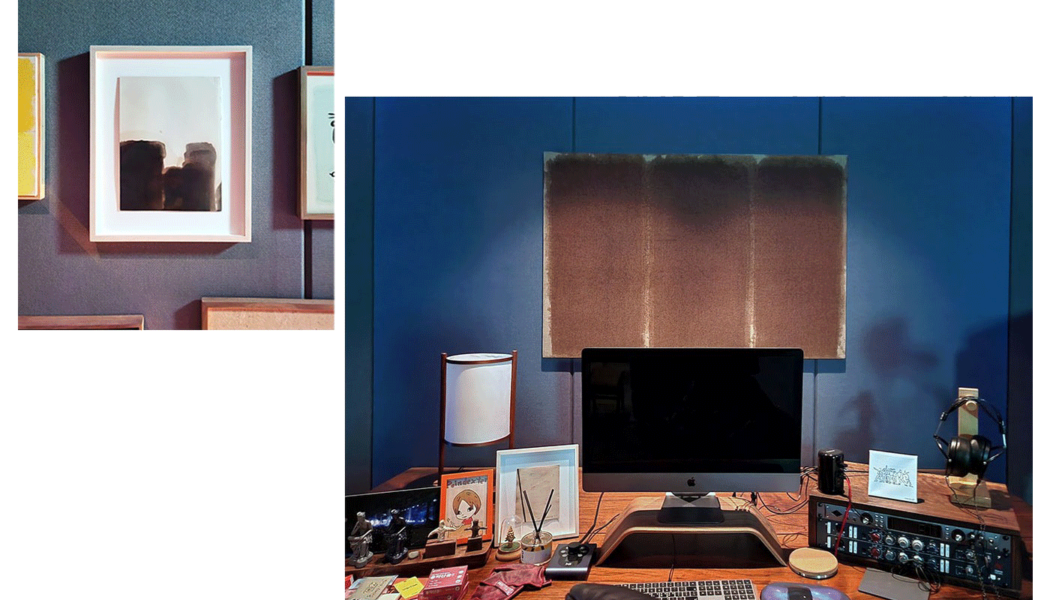




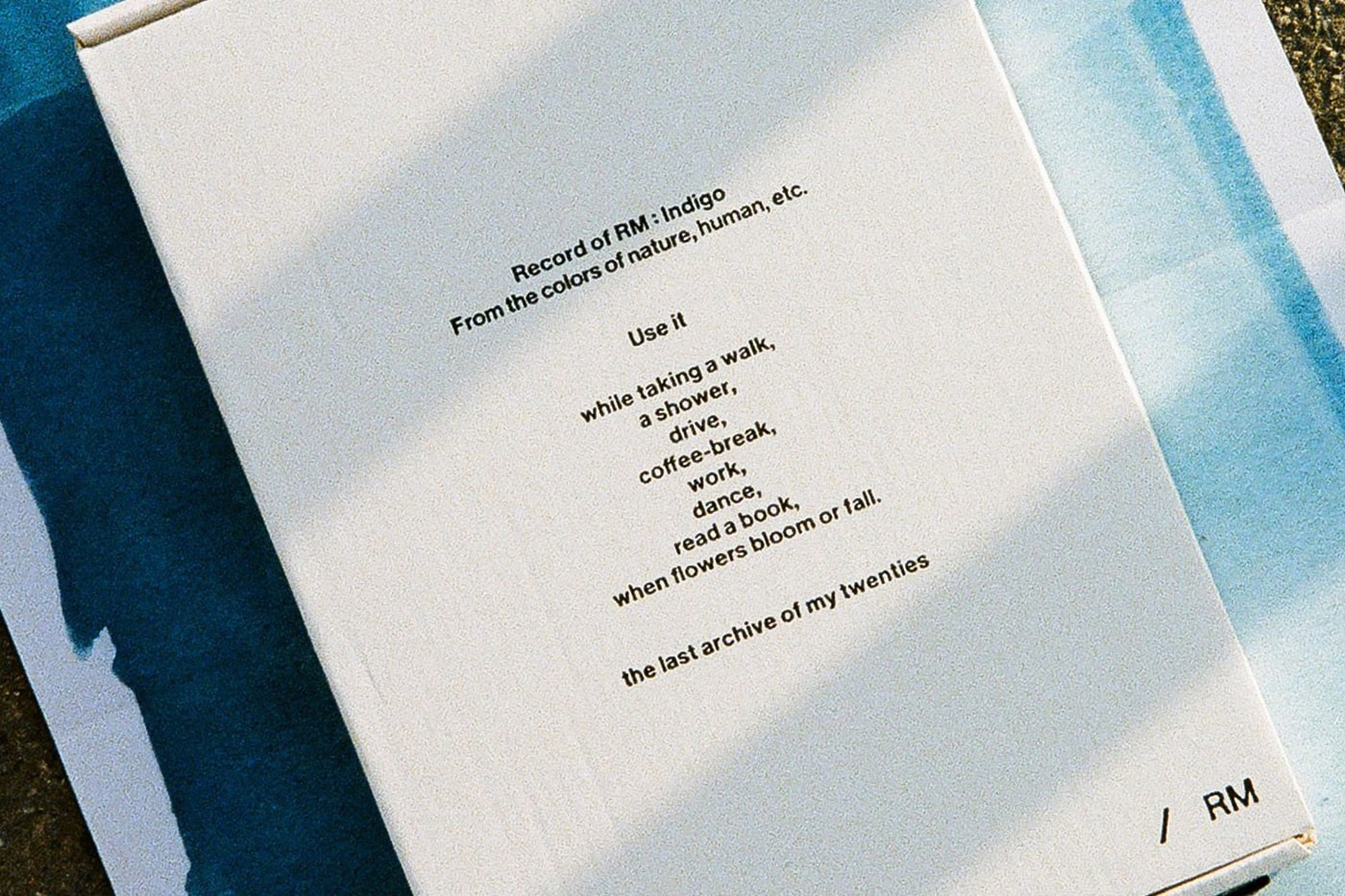
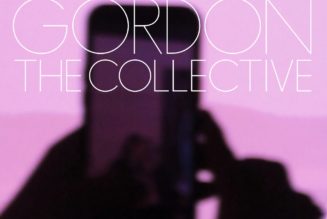
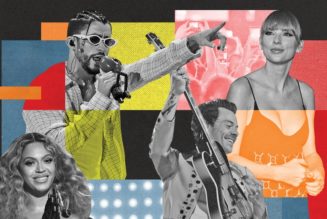
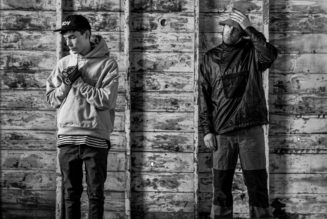
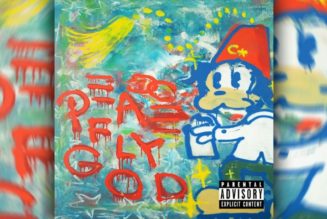

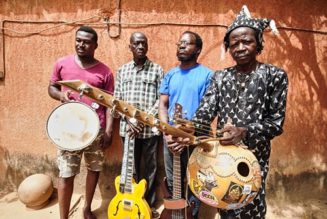
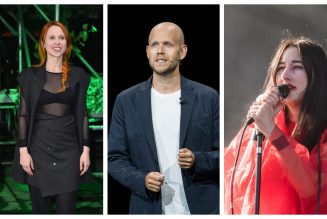
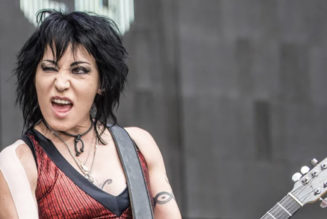
Tagged: entertainment blog, FEATURES, music, music blog